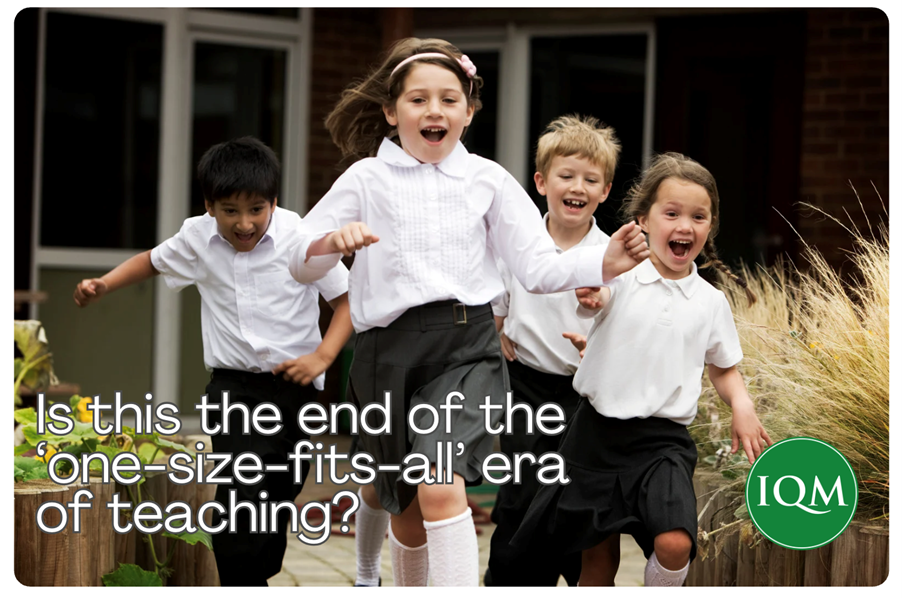Who is IQM?
IQM is the only national inclusion award in the UK. For over 20 years and in over 20 countries, schools, MATs and Local Authorities use the Inclusion Quality Mark to recognise exemplary inclusive practice.
Get in touch for your FREE school information pack today.
Centre of Excellence for St William of York
July 31, 2023
St William of York RC Primary School has achieved the Inclusive School Award with Centre of Excellence.
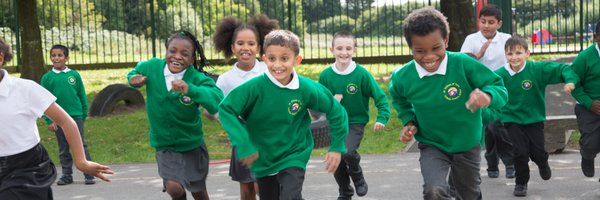
Strong Relationships
St William of York is a vibrant one-form entry Catholic primary school with a nursery in a densely populated and diverse urban area. Everything the school does is underpinned by strong relationships, within and beyond the building, and by a clear understanding of the needs of each person in that community.
The school is in the second-most deprived, and 96% of pupils live in the most-deprived, postcode area of the country. Speakers of English as an Additional Language (EAL) comprise 45% of the pupils and an increasing number of new starters arrive from overseas with little or no English. Of the pupils, 73% are members of an ethnic minority group, 38% are eligible for Free School Meals (FSM) and 15% are on the SEND register, with a ratio of almost two-to-one boys to girls, of whom eight have an Education, Health and Care Plan (EHCP) in place.
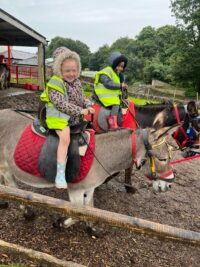
The starting points of children entering the school are lower than the national average; however, children settle quickly and make very good progress so that attainment is high by Year 6, with 91% of children achieving age-related expected results in reading and mathematics Standard Assessment Tests (SATs) last year. As the Special Educational Needs Co-ordinator (SENCo) and IQM Lead commented, “in a school like this we can’t just teach. If the school was to get graded as ‘Outstanding’ for the personal development area, those are our pupils, those are our families, that is what matters.”
Continuing to Improve
According to the Ofsted routine inspection conducted in March 2023, if the school was inspected now under Section 5 it would be likely to achieve a judgement of ‘Outstanding’. Indicative of the attitude here, the SENCo committed to the IQM assessment process in order to continue developing the provision – where other settings may be tempted to rest on their laurels, St William of York school is continuing to push and improve even further.
This school welcomes children and their families from across the local area and all over the world, many of whom are new arrivals to the country and value the school very highly as a resource for connections, information and support.
Unlike other settings where international new arrivals form a significant proportion of the population, the transience of pupils is very low, as families rarely leave the community once they join. One parent said that he had decided not to move house – and definitely not to return to Sri Lanka in the short term – because his children had made it very clear that they would refuse to move school! A child who joined the school mid-year summed it up by saying, “I thought I might take days to make new friends here… but it only took until break time!”
Families with a heritage of generations living in the Bolton area are also highly valued, welcomed and relish the vibrancy of their community. They are equally celebrated and supported and the parents spoken to were effusive about the school, its staff and the central role it plays in their families’ lives.
Known as an Individual
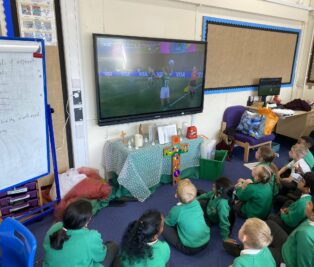
A key strength of this setting is the close relationships between staff and their pupils and colleagues, pupils and their peers, and between the school and families. Every child and staff member spoken to clearly feels heard, seen and known as an individual, and has their unique needs met as well as possible. Parents spoke very movingly of their experiences in joining this school’s community and the feeling of being members of a family was mentioned time and again.
Children throughout the school articulated its inclusive ethos beautifully, using phrases such as, “Nobody is left alone,” and “Everyone treats everyone the way they want to be treated. It is so diverse and so equal.” They spoke of reaching out to new arrivals, giving peers extra time or space, and talked about their teachers and senior leaders’ modelling of inclusive language and approaches.
The Governors offer an effective ‘critical friend’ approach and are clear about their roles and how they can help the school to be inclusive, from finance and budgeting as well as safeguarding and SEND points of view. Again, they feel valued and known as individuals, able to use their skillsets for maximum impact, and passionate about being part of the family of the school. They are also rigorous in their approach, reviewing documents and ensuring meetings are as effective as possible, conducting audits and reporting back to staff on a frequent basis.
Striving for Improvement
The Senior Leadership Team (SLT) is committed to getting the best for every child and lead the staff in making accurate and timely use of both attainment data and qualitative information about children’s backgrounds, contexts and needs for support or challenge, or both. They are perpetually striving for improvement in their own practice and looking for opportunities to further develop, ensuring that changes are beneficial and do not simply add to staff workload.
Recognising the unique pupils they teach, the staff have implemented a bespoke curriculum and make elegant use of opportunities to link local, national and global topics, as well as periods of history that can otherwise feel remote, to concrete and relevant experiences in their pupils’ lives. They do not shy away from exploring topics appropriately from multiple perspectives; for example, the benefits to Bolton of its rise as one of Lancashire’s cotton towns, and the costs of the Industrial Revolution felt elsewhere.

A key element of the curriculum that is very noticeable in its positive impact is the introduction of oracy, which is one-third of the way into a three-year launch period. The four strands (physical, cognitive, linguistic and social/emotional) have been introduced to all children, with clear progression in skills and expectations from Early Years (EY) to Year 6. A key element is ‘proof of listening’ such as body language, eye contact and focusing on what is being said, rather than waiting to speak.
It was remarkable to see every child listen fully to their peers during group discussions and following on from each other’s ideas so attentively. The youngest children develop full sentences alongside Makaton use, and the language modelling they receive supports all learners. Meanwhile, the older pupils are supported to consider context, for example giving a ‘fast answer’ rather than a full sentence to answer the dinner register.
Child’s Experience
Each child’s experience is carefully and thoughtfully curated throughout their school life, and provision is tailored to individuals’ needs, skills, interests and areas for further development. The staff strive to listen to and learn from the children and families, as well as providing rich learning environments and opportunities for each pupil.
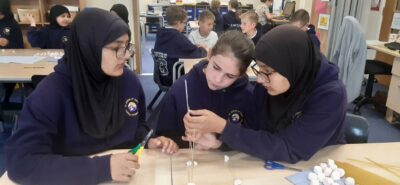 Parents, carers and guardians are active and welcome partners in their children’s education and wider development. Their global and local links are celebrated and cherished, contributing to a vibrant culture of mutual respect and appreciation. The families, local community and Catholic school community are all recognised and drawn upon as rich resources by school.
Parents, carers and guardians are active and welcome partners in their children’s education and wider development. Their global and local links are celebrated and cherished, contributing to a vibrant culture of mutual respect and appreciation. The families, local community and Catholic school community are all recognised and drawn upon as rich resources by school. Staff have deep and detailed knowledge of the children they teach, their key characteristics and how to balance high expectations with any adjustments which may be required. Local events and opportunities are promoted in school and children feel proud to represent St William’s at sports festivals, on educational visits or when visiting charities or other schools.
Find out more about the IQM Inclusive School Award
If your school is interested in obtaining the IQM Inclusive School Award or you wish to talk to a member of the IQM team please telephone:
028 7127 7857 (9.00 am to 5.00 pm)
or email: admin@iqmaward.com for further details.
Want more information on the IQM Award? Click here to request your free IQM information pack
Other Posts

About IQM
The only national award for inclusion in the UK, IQM has been committed to recognising exemplary inclusive schools for over 20 years and in over 20 countries around the world. The three awards allow schools and organisations to celebrate their inclusive practice against nationally recognised framework.
Site Links
© 2026 Inclusion Quality Mark | website developed & cared for by digidoda

